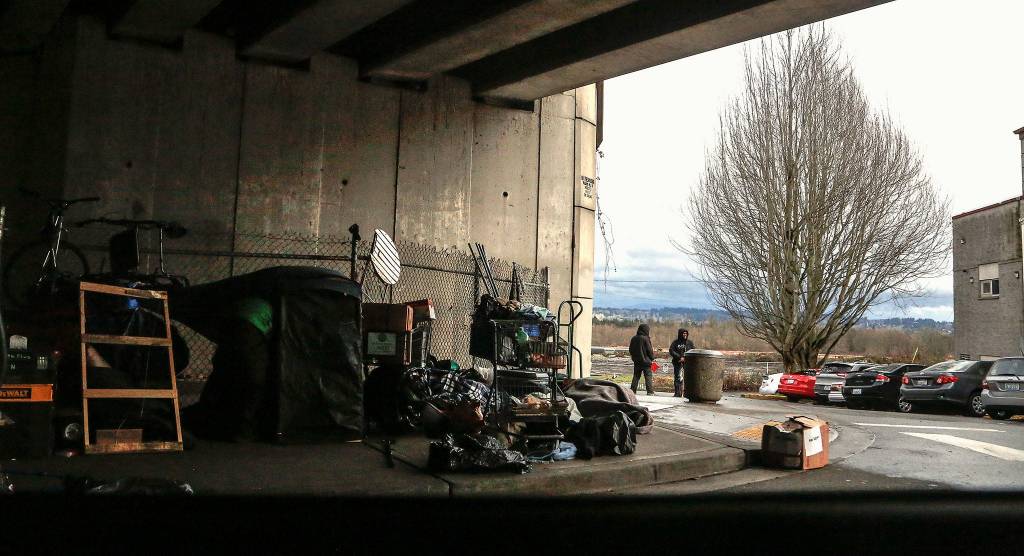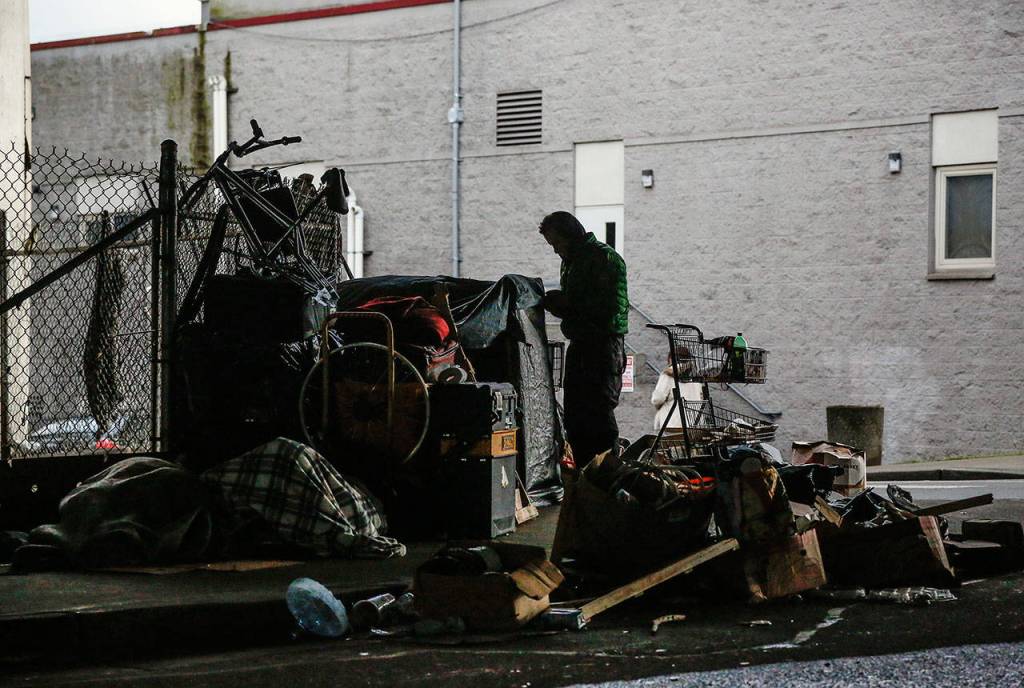Concerns, questions delay Everett Station Improvement Area
Published 1:30 am Thursday, January 23, 2020





EVERETT — Questions about the validity of an agency that could levy $485,000 from about 160 property owners around Everett Station halted its progress this week.
The Everett Station District Alliance, with the city’s support, had been seeking to form a Business Improvement Area, a designation that would generate about $420,000 for parking, decoration of public space, public events, management, promotion, maintenance, security and transportation services in the area.
But concerns from some potentially affected property owners prompted the Everett City Council president to pull a final hearing from Wednesday’s agenda.
“There’s some sort of overreach going on,” said Peter Newland, a developer who owns a few properties in the Everett Station area.
Brock Howell, Everett Station District Alliance’s executive director, disputed that claim.
“We’re confident with having about 60% support across the entire neighborhood,” he said.
One requirement is that controlling owners of at least 60% of the assessed value in the area must agree to participate.
The city controls about 15% of the assessed value in the proposed Everett Station District, which roughly would be north of 41st Street along Broadway to Hewitt Avenue, and east to I-5 and the Snohomish River.
Newland criticized the formation process as flawed. He told The Daily Herald that he and another property owner found more than 30 other owners who opposed the project.
“We all talked to our neighbors, and it didn’t seem credible to us,” Newland said.
Howell said numbers presented to the city by critics were inaccurate because they included some property owners who were not in the proposed boundary and counted some who had not signed the petition but who were not necessarily opposed to it.
Those questions led the City Council to delay Wednesday’s scheduled final public hearing. Council members asked staff to verify the petition’s support and for clarity on the BIA’s proposed budget.
“Some of the folks saw their name on the list and said, ‘I never signed it and I am not a supporter,’” Council President Judy Tuohy said.
The petition had not been presented to the City Council for review, she said.
In December, the City Council unanimously approved the proposed district. But boundary changes required it be brought before the council again. That pushed back the BIA’s proposed start date for assessments and prorated its budget.
Another delay is likely to do the same, as Tuohy said it could be a couple of weeks before staff has answered the City Council’s questions.
In the Everett Station District Alliance’s Business Improvement Area Work Plan, expenses were projected to be $411,999. Of that, $130,000 would be for “ambassadors” to monitor criminal activity and assist people experiencing homelessness or mental illness by connecting them with services. Crews would also be tasked with cleaning up litter and removing graffiti. The executive director was budgeted for $100,000 and an administrative assistant for $42,500, including salary, benefits and taxes.
The cost of staffing was raised as an issue by Newland and others.
“There have been some questions raised about the boundaries and about the finance structure,” Councilmember Paul Roberts said.
Howell welcomed the closer inspection and said his group would figure out its strategy in the meantime.
“Obviously these are important and serious questions that have been raised, and we’re happy for the council to take the time to deliberate them,” he said.
Everett has another BIA downtown that was created in 1995. Its rates are $0.14 per $1,000 of assessed value and $0.08 per square foot.
If approved, Everett Station District properties (with some exemptions) would be charged based on assessed value and square footage — $0.67 per $1,000 of assessed value and $0.04 per square foot.
Newland said he questioned the Alliance’s claim that the benefits and property value increase from the BIA would be equal to or greater than the amount of the assessment. He also said he had not calculated the cost for his properties.
“There’s kind of no showing that we get additional benefit,” he said. “It isn’t that we’re not willing to support good causes, it’s that this one appears to not provide good value.”
The City Council put the vote on the BIA’s formation on hold until it could review those issues. Tuohy said she would try to put the final hearing and vote at the next daytime meeting, which would be Feb. 19.
Ben Watanabe: bwatanabe@heraldnet.com; 425-339-3037. Twitter: @benwatanabe.
Correction: An earlier version misstated what the executive director and administrative assistant would make. The proposed budget for the executive director is $100,000 and $42,500 for the administrative assistant, for salary, benefits and taxes.









